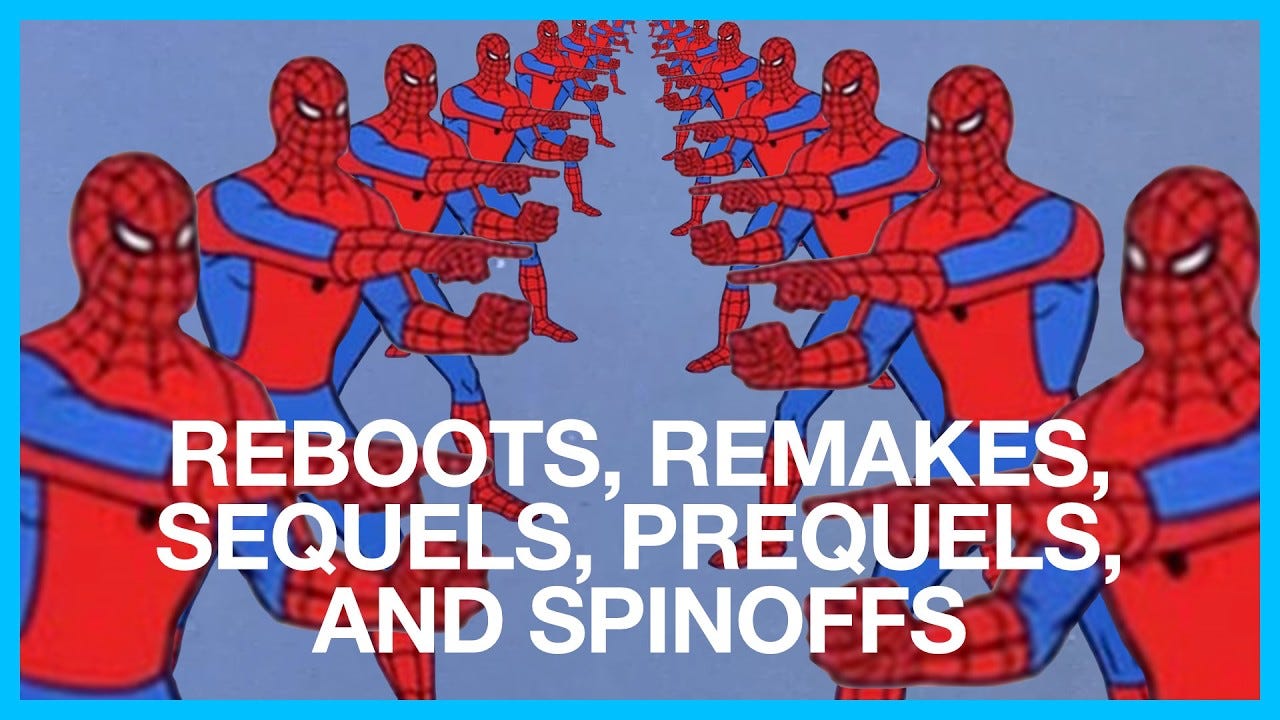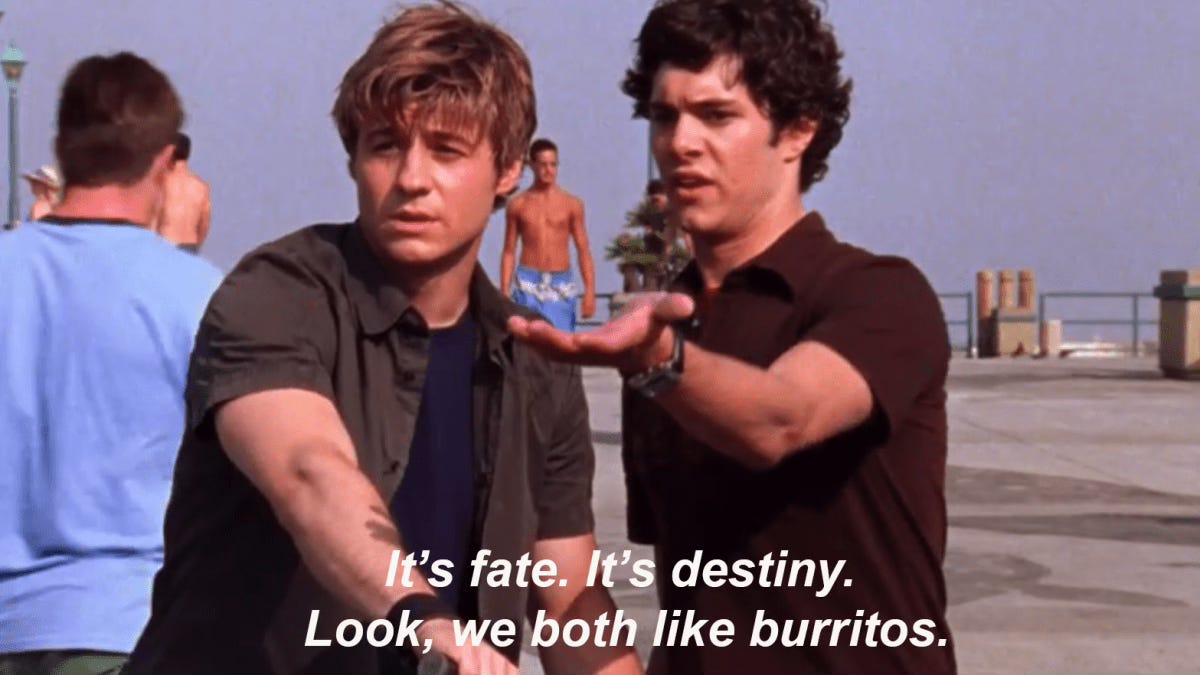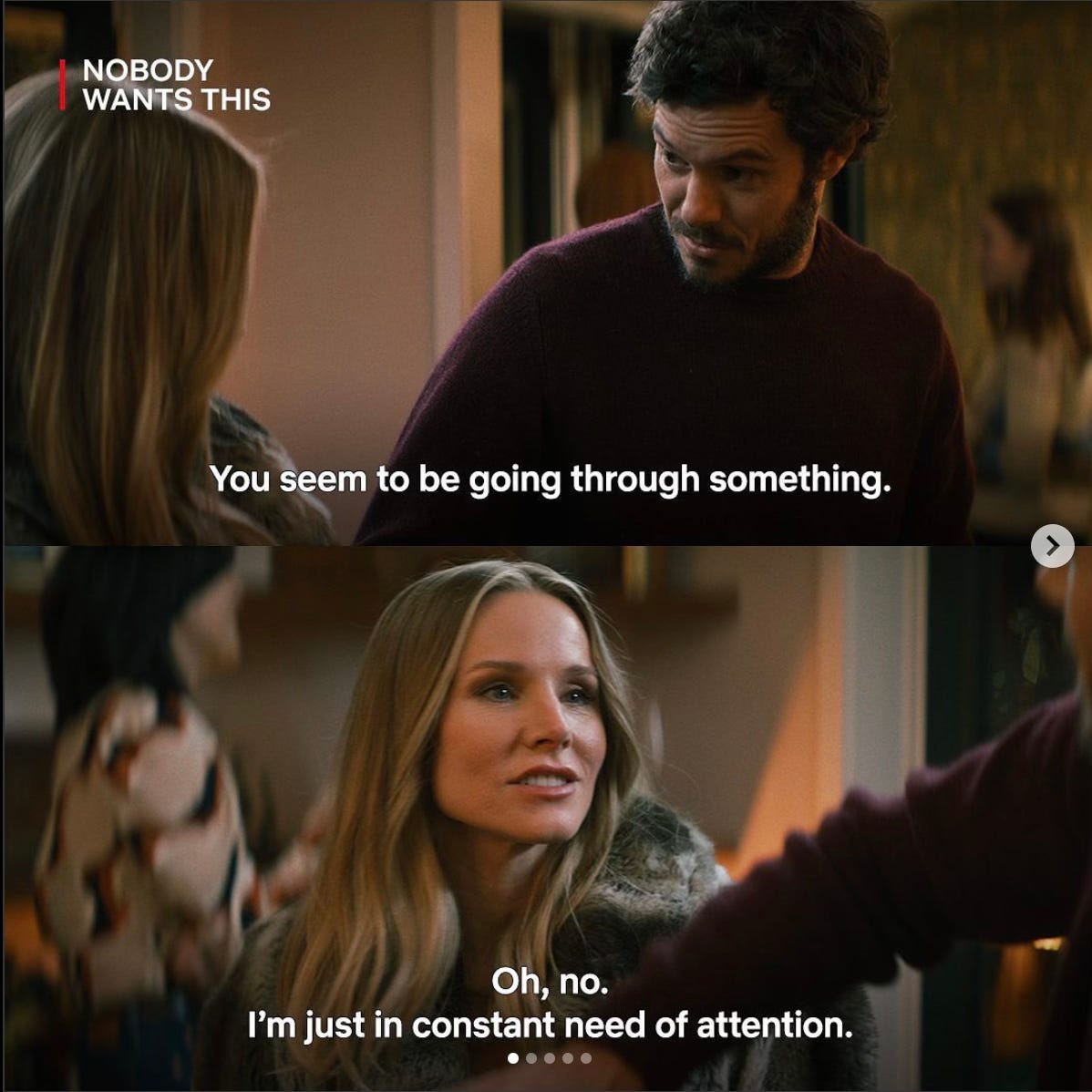The Incomplete Guide to Millenial Pop Culture Now
In which Vanessa reminisces, and looks forward.
Millennial pop culture is all grown-up - sort of
My name is Vanessa, and I’m a millennial. You can’t cure that - not that I’m trying - but we’re a dying breed (dark humour is a must for our survival), and we’ve got to face it. I grew up on what I call the CW diet, which will mean nothing to anyone not from the US. The CW was a TV channel that was home to content perfect to shape impressionable precocious teenage girls: Gilmore Girls, The OC, One Tree Hill, Veronica Mars, Gossip Girl.
Its stars were Matt Czuchry, Rachel Bilson, Adam Brody, Kristen Bell, Blake Lively, Leighton Meester -- truth be told, I could list more, but they won’t emphasise the point I’m making too much. The point is: these are not people consigned to the past. To be fair, that’s not to be expected either. Actors are humans too, so they’re likely to work, just as us normies do.
But what my point is: they haven’t outgrown the programmes that made them famous. Sure, Czuchry had a fantastic turn as Cary Agos in The Good Wife, and has assumed the lead in his own medical drama. Lively helms blockbusters (more or less successfully). But even after big screen rom com leads and Disney domination, Kristen Bell starred in Netflix’ smash success Nobody Wants This, with the familiar face of Adam Brody.
The return of the inner life of a teen
While not everyone celebrates this, what sees Nobody Wants This stand out is the regressive characters that populate its story. When we were growing up, our adult comedy heroes were on comedy focuses that included romantic storylines, like Friends, or How I Met Your Mother. On the other hand, it was the heyday of romantic comedies, with actors like Kate Hudson helming How to Lose a Guy in 10 Days or Raising Helen.
As we entered adulthood, the ensemble TV comedies went through a mockumentary stretch in the 2010s - your Parks and Recreation, Modern Family (it picked up steam towards the end), or Brooklyn Nine-Nine. It was a phase where producers deconstructed the familiar and dependable, often starting out coarse and then moving on to humanise the people within these structures.
But in a manner that mirrors the uncertainty that we feel in the context of a cost of living crisis, delaying lifetime milestones, and not being able to follow the path that was ordained for us, some the stories millennials are telling and gravitating towards - like Nobody Wants This - are not of people who are achieving the picket fence and 2.1 children with a dog.
Don’t get me wrong - what we see are still wildly unrealistic/aspirational lives: how many of us are paying rent because of their monetised podcast centred on their dating and sex life? (Please comment if this is you - we have some proposals for you!) But I recognised that protagonist Joanne lives life as emotionally challenged as the teens I grew up watching. And that is its own form of living vicariously.
TV: Your Personal Jesus (or not, if you’re Jewish?)
This Thursday, Netflix dropped its most recent addition to the rom com TV canon with Running Point, led by Kate Hudson. Created by and co-written by stalwart of the rom com TV genre, Mindy Kaling, it features another messy example of a woman, surrounded by a mess of a family, and running an American sports franchise.
It truly is reminiscent of Hudson’s role in Raising Helen (I didn’t drop that name for nothing): a party girl is given responsibility that she rises to, but in her own way. I think this resonates strongly with women audiences today (and I’d love it if men dug it too), because it shows what a more relatable pursuit of wanting it all could look like. The show says that even people in successful positions struggle, which is a direct contrast to what LinkedIn (and hustle culture) tells us.
While the chances of any of us ascending to sports team ownership is unlikely unless you want to adopt the German football system, this is more real than what Sex and the City tried to sell us. It’s less depressing and still more real than what Girls tried to sell us. Yes, we are grown ups, but, much as that mockumentary period showed us, grown ups don’t have it all figured out, so now we’ve let the facade drop that we must act like adults, simply because we have reached that life stage. Because, have we?
Like I mentioned, us millennials are delaying lifetime milestones. So I’m glad I’m not confined to rewatching my childhood comfort TV shows - instead there’s fresh material, but with the same comforting faces, showing me that pop culture is in exactly the same place. At least it’s not a fucking sequel or reboot.






